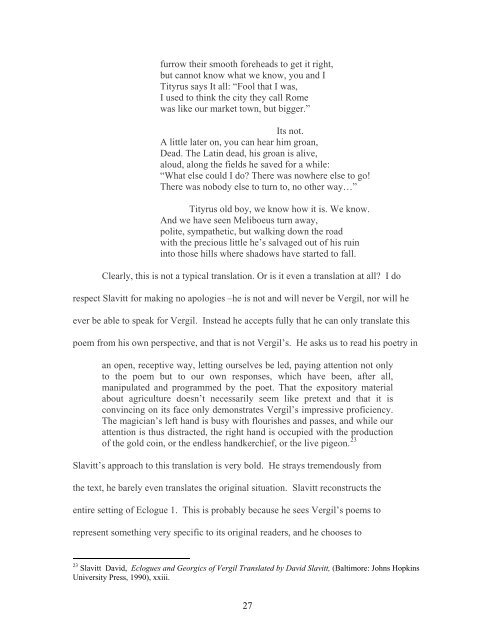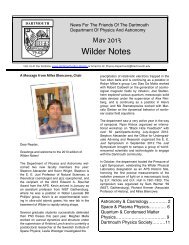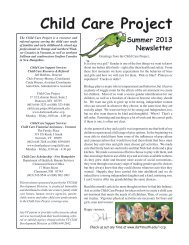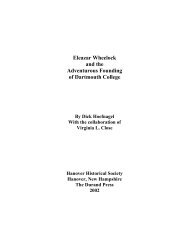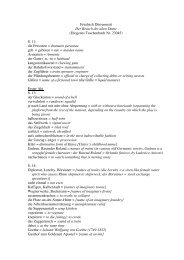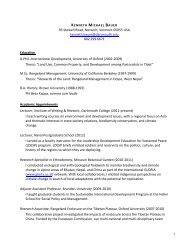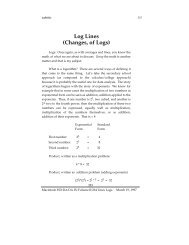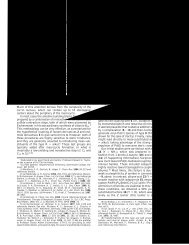A Log Cabin Out of Stone: - Dartmouth College
A Log Cabin Out of Stone: - Dartmouth College
A Log Cabin Out of Stone: - Dartmouth College
Create successful ePaper yourself
Turn your PDF publications into a flip-book with our unique Google optimized e-Paper software.
furrow their smooth foreheads to get it right,<br />
but cannot know what we know, you and I<br />
Tityrus says It all: “Fool that I was,<br />
I used to think the city they call Rome<br />
was like our market town, but bigger.”<br />
Its not.<br />
A little later on, you can hear him groan,<br />
Dead. The Latin dead, his groan is alive,<br />
aloud, along the fields he saved for a while:<br />
“What else could I do? There was nowhere else to go!<br />
There was nobody else to turn to, no other way…”<br />
Tityrus old boy, we know how it is. We know.<br />
And we have seen Meliboeus turn away,<br />
polite, sympathetic, but walking down the road<br />
with the precious little he’s salvaged out <strong>of</strong> his ruin<br />
into those hills where shadows have started to fall.<br />
Clearly, this is not a typical translation. Or is it even a translation at all? I do<br />
respect Slavitt for making no apologies –he is not and will never be Vergil, nor will he<br />
ever be able to speak for Vergil. Instead he accepts fully that he can only translate this<br />
poem from his own perspective, and that is not Vergil’s. He asks us to read his poetry in<br />
an open, receptive way, letting ourselves be led, paying attention not only<br />
to the poem but to our own responses, which have been, after all,<br />
manipulated and programmed by the poet. That the expository material<br />
about agriculture doesn’t necessarily seem like pretext and that it is<br />
convincing on its face only demonstrates Vergil’s impressive pr<strong>of</strong>iciency.<br />
The magician’s left hand is busy with flourishes and passes, and while our<br />
attention is thus distracted, the right hand is occupied with the production<br />
<strong>of</strong> the gold coin, or the endless handkerchief, or the live pigeon. 23<br />
Slavitt’s approach to this translation is very bold. He strays tremendously from<br />
the text, he barely even translates the original situation. Slavitt reconstructs the<br />
entire setting <strong>of</strong> Eclogue 1. This is probably because he sees Vergil’s poems to<br />
represent something very specific to its original readers, and he chooses to<br />
23<br />
Slavitt David, Eclogues and Georgics <strong>of</strong> Vergil Translated by David Slavitt, (Baltimore: Johns Hopkins<br />
University Press, 1990), xxiii.<br />
27


